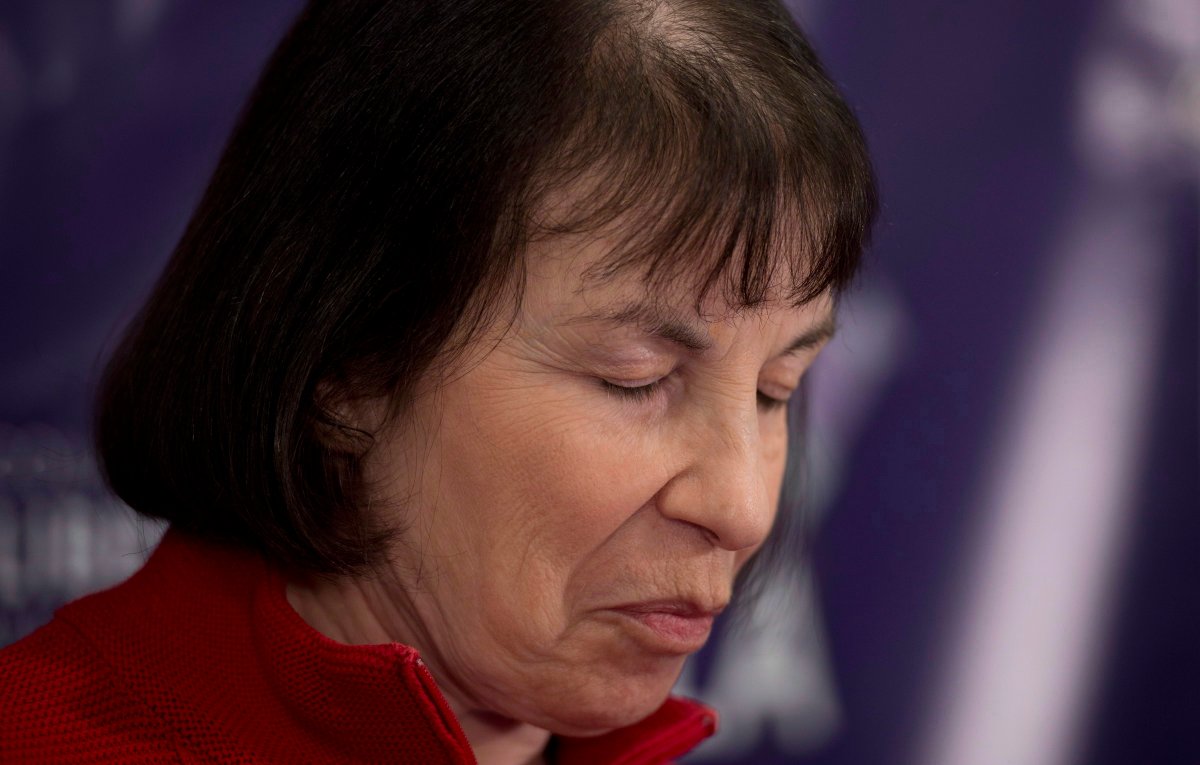It’s been 53 months since Elayne Shapray first put her name on an affidavit arguing for the right to die.

She learned Friday afternoon she’ll have to wait another four.
READ MORE: Supreme Court gives feds an extra 4 months on physician-assisted death
“I’m disappointed,” she said by phone shortly after the Supreme Court released its ruling.
“I don’t think there’s any need for an extension.”
The court gave the federal government an extra four months to come up with laws on assisted suicide, but made an exception for Quebec, which has already started to help people in pain end their lives.
The federal government had argued it was “naive” to think the prohibition on assisted dying could expire within a legal vacuum. Ottawa said it needed to draft laws regarding who is eligible for assisted death and who can assist with that death, among other things.
“The difficulty in this case is that the issues are so enormous and so complex … it is a new Parliament, they have to grapple with the issues,” Crown lawyer Michael Frater argued earlier this week.
(Global News is awaiting comment from the Justice Minister. We’ll update our copy when we get comment.)
The Council of Canadians with Disabilities welcomed the decision. James Hicks said he’s hopeful this will give the government time to put safeguards in place for people with disabilities.
The feds had argued for six months, which a government lawyer had said isn’t very long in politics.
But it’s a long time if you’re enduring intolerable suffering.
“This is not an abstract issue. This is real people who are suffering indignities and pain,” Shapray said.
“I think parliament should have been more attuned to the suffering of people.”
She was shocked at questions during this week’s hearings from Supreme Court Justice Michael Moldaver that referenced “doctors killing people.”
“Some of the questions, I thought, were quite insensitive,” she said.
“There was clearly no compassion on the part of some of the judges.”
It’s hardly an abstract issue for Shapray: The Vancouver resident has Multiple Sclerosis. She filed evidence in the case when it originally went to court, in the summer of 2011. Since then “I’ve only gotten worse, not better.”
Shapray spent years as a palliative care volunteer.
“I have seen some people suffer horrible, horrific deaths with their families watching,” she said.
She knows she doesn’t want that for herself.
She’s not prepared to talk about whether she’ll have to go to court in the next four months to ask for an exemption on doctor-assisted death. She doesn’t know whether it will come to that.
“But this is about choice,” she said.
“What I want to have is a choice.”
And the option to apply for a court exemption is hardly a substitute for the right to die if you’re deeply unwell, she said.
“People who are suffering, the elderly or weak and tired, going to the courts? Having to apply to court is an onerous task.”




Comments